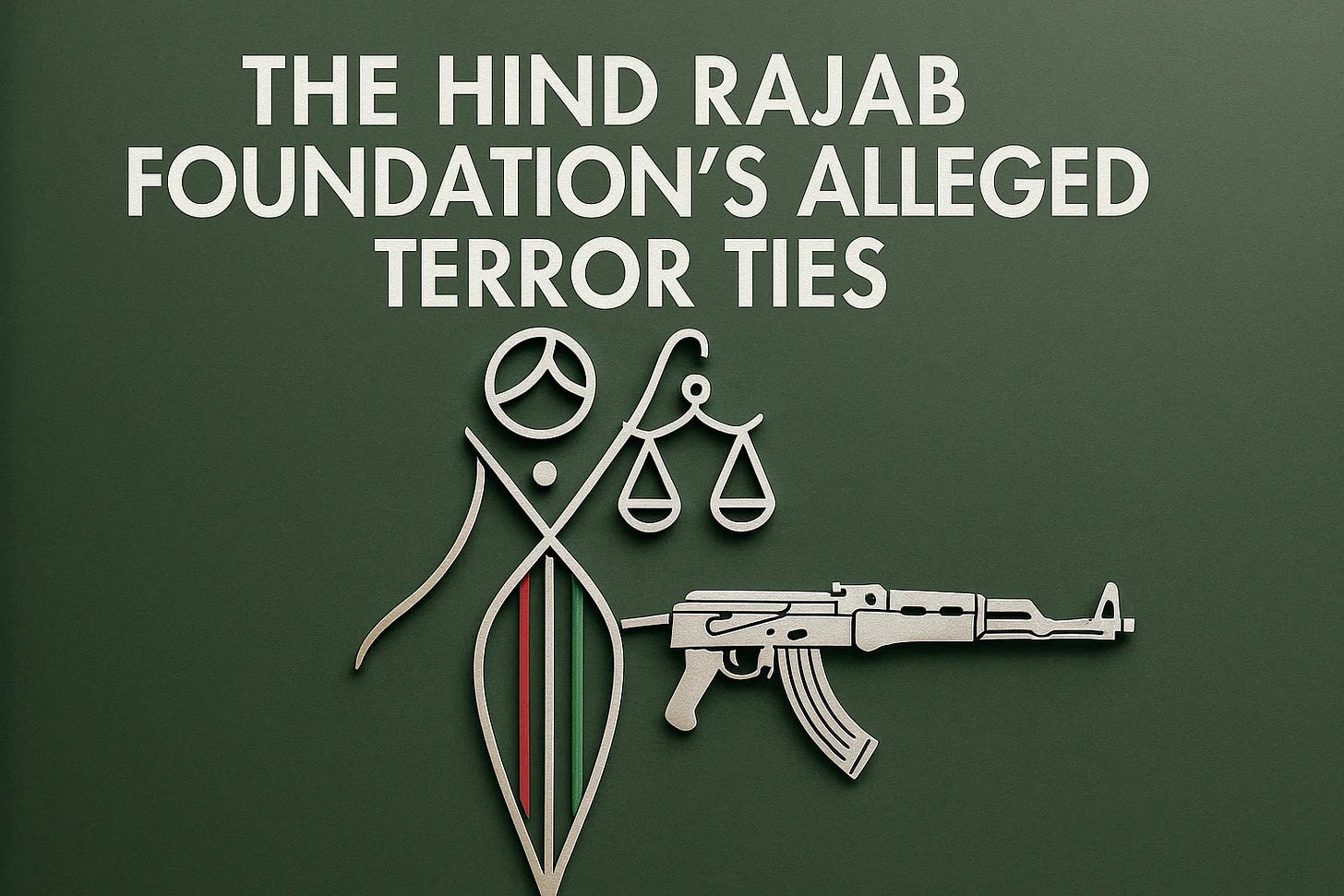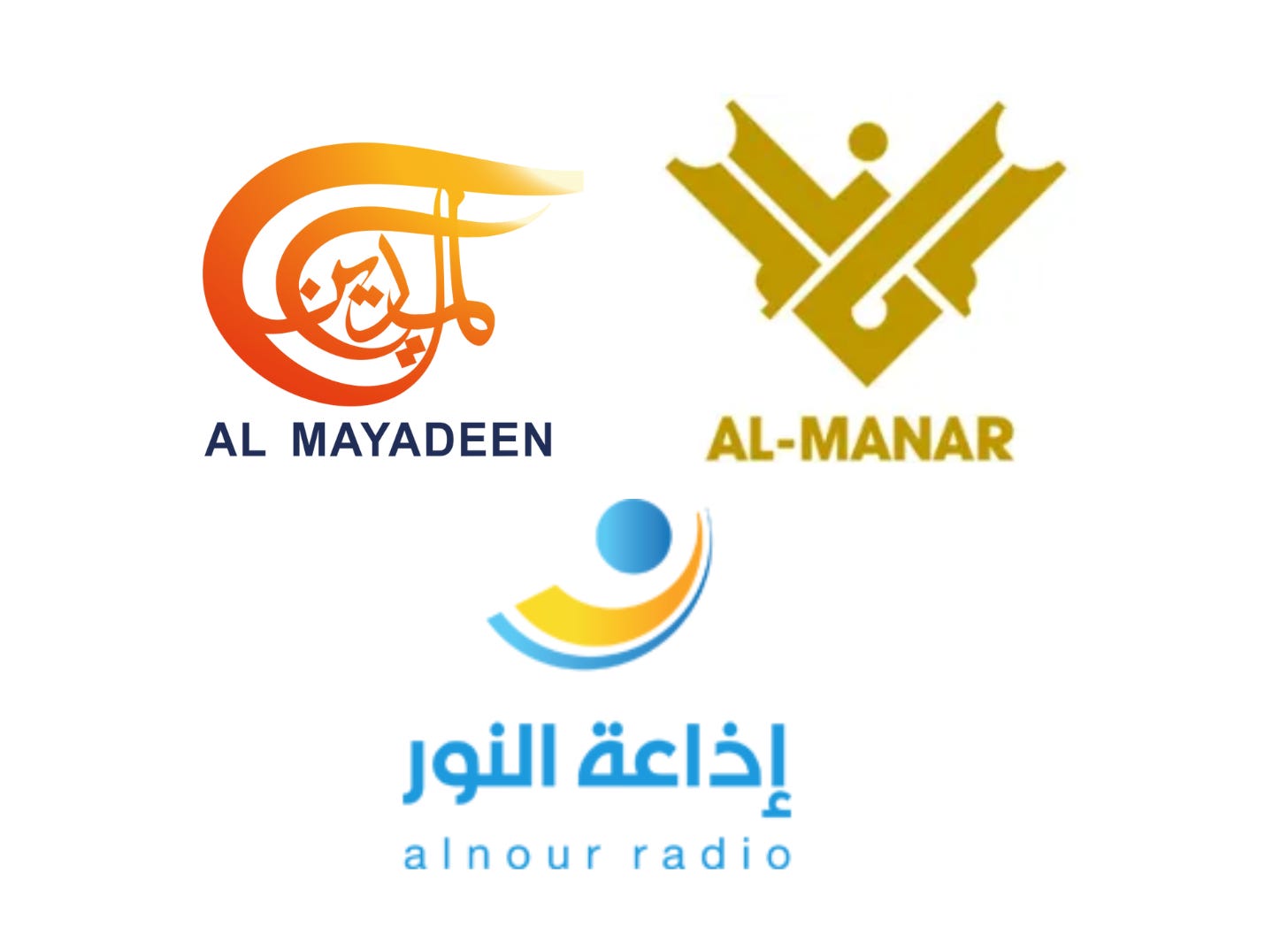New Report Exposes Hind Rajab Foundation's Terror Ties
The International Legal Forum & National Jewish Advocacy Center report reveals how the Belgian organization, which has targeted 1000+ Israeli soldiers and veterans, is tied to Hezbollah
A new report released by the International Legal Forum and National Jewish Advocacy Center alleges that the Belgium-based Hind Rajab Foundation operates as a proxy for designated terrorist organizations, using international courts to target Israelis worldwide over false allegations of “war crimes.”
The 20-page report claims the foundation, which has filed complaints against over 1,000 Israeli soldiers and veterans with the International Criminal Court and various domestic legal bodies in Europe and Latin America, maintains extensive connections to the Hezbollah and Hamas terrorist organization.
Leadership's Alleged Terror Ties
At the center of the allegations is foundation president Dyab Abou Jahjah, who according to the report openly admitted in a 2003 New York Times interview to joining Hezbollah and receiving military training from the organization. "I had some military training, I'm still very proud of that," Jahjah stated at the time.

The report alleges Jahjah is on the U.S. No Fly List due to these affiliations and maintains family and business ties to Hezbollah's financing network. His brother Ziad reportedly worked for Soafrimex, a Lebanese-Belgian trading company whose owner, Kassim Tajideen, was later designated by the U.S. Treasury as an important financial contributor to Hezbollah.
Financial Structure Raises Red Flags
The report highlights concerning financial practices, including the use of shell companies and unclear funding mechanisms that allegedly mirror patterns used by Hezbollah's international financing network.
According to the investigation, Jahjah maintains an extensive web of business relationships spanning multiple jurisdictions. He served as CEO of JANA SARL, a Business Process Outsourcing company based in Lebanon, from January 2009 to September 2013. More troubling, the report alleges, are his partnerships with individuals directly connected to U.S.-sanctioned entities.
Jahjah reportedly co-owns Sales Force, a Lebanese real estate company, with Saleem Sleem, described as a Lebanese lawyer whose firms have been sanctioned by the U.S. for being Hezbollah-affiliated. Additionally, Jahjah and foundation co-founder Karim Hassoun jointly own Bellezza, a Belgian company established in 2020 that appears to function as a shell entity. Belgian company registry records show Bellezza's stated purpose includes "real estate, operating catering businesses, organizing conferences and many other activities," a broad scope that the report characterizes as consistent with shell company operations designed to obscure actual business activities.

The financial connections extend through family ties to established Hezbollah networks. Jahjah's brother Ziad worked for Soafrimex, a Lebanese-Belgian trading company whose owner, Kassim Tajideen, was designated by the U.S. Treasury as "an important financial contributor to Hezbollah." Tajideen was sentenced to five years in prison in 2019 and ordered to forfeit $50 million for operating a complex money laundering and terrorist financing scheme. Belgian authorities separately accused Soafrimex of laundering over €50 million through under-invoicing, forged customs paperwork, and a network of shell companies spanning Africa and the Middle East.
During these investigations, Belgian State Security reportedly examined whether Soafrimex funds had been channeled to support Jahjah's political activism through his Arab European League. The report suggests this historical pattern of opaque financial structures and connections to sanctioned Hezbollah financiers has continued through the Hind Rajab Foundation's current operations.
These financial networks allegedly mirror historical patterns used by Hezbollah for international fundraising and money laundering operations, raising concerns about the foundation's true funding sources and objectives.
Terrorist Media Amplification
According to the investigation, Hezbollah-affiliated media outlets actively promote the foundation's activities. Al Mayadeen alone published nearly a dozen articles on the organization, while Al Manar TV and other terrorist-linked publications have amplified its legal filings and objectives.
The report documents a coordinated media campaign across multiple terrorist-linked platforms that extends beyond simple news coverage. Al Nour Radio has circulated detailed reports on the foundation's legal strategies, while Al Ahed has disseminated personal declarations from Abou Jahjah outlining the organization's objectives. Hamas-affiliated outlets have similarly promoted the foundation's activities as part of what the report characterizes as a broader "resistance" narrative. This media ecosystem creates an echo chamber that legitimizes and amplifies the foundation's legal warfare tactics, while providing propaganda value that extends the impact of each legal filing far beyond the courtroom.
Global Legal Campaign
The foundation, officially registered in Belgium in September 2024, has pursued cases across multiple jurisdictions using universal jurisdiction principles. Its ICC complaint targets soldiers with dual citizenship from France, the United States, Canada, the United Kingdom, and the Netherlands. The organization has announced plans to pursue additional legal action against dual nationals in their respective home countries.

Beyond the ICC filing, the foundation has demonstrated remarkable speed in expanding its legal operations across multiple continents. According to the report, it has filed complaints in Ecuador, Brazil, Argentina, Sri Lanka, France, the Netherlands, Cyprus, Thailand, and the United Kingdom within months of its establishment. In January 2025, the foundation claimed a significant victory when a Brazilian court reportedly issued an urgent order for police intervention against an Israeli soldier vacationing in the country, forcing the individual to flee to Argentina.
Broader Implications
The report's authors argue this represents a sophisticated campaign to weaponize international legal systems against democratic nations' military personnel. The foundation's activities have raised particular concern as they directly challenge President Trump's Executive Order 14203, which imposes sanctions on ICC personnel and those aiding ICC campaigns targeting Israelis.
The implications extend beyond individual prosecutions to fundamental questions about how terrorist organizations can exploit legitimate legal mechanisms to advance their strategic objectives. The report suggests this model could be replicated by other terror-linked groups, creating what experts describe as sanctions pathway circumvention, using seemingly legitimate NGOs and legal proceedings to accomplish what direct terrorist financing cannot.
This approach potentially undermines both international sanctions regimes and the operational security of military personnel from democratic nations, while simultaneously providing propaganda victories for terrorist organizations through the mere filing of complaints, regardless of their ultimate legal success.




